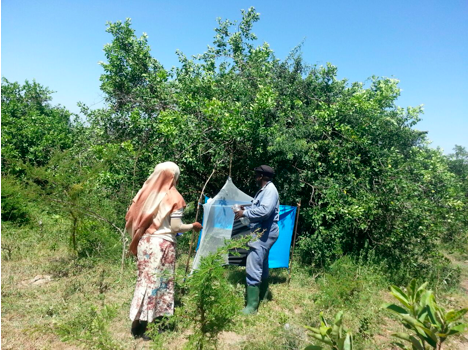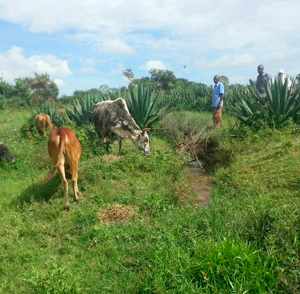Progress on sociological studies assessing the perceived risk of trypanosome infection in marginalised communities
April 24th, 2017
Sociological research forms a major component of the WHO-funded project Human African Trypanosomiasis: alleviating the effects of climate change through understanding human-vector-parasite interactions. Professor Dismas Mwaseba’s research utilised household surveys, focus group discussions and targeted interviews, in order to discern knowledge, attitude and practice (KAP) of marginalised rural people towards HAT and its control under various climate change scenarios.
The emic approach allowed local narratives regarding tsetse, AAT, and tsetse control methods to be captured and analysed. The focus group discussions (FGDs) and key informant interviews enabled the research team to probe further into the results obtained from the household survey. Narratives surrounding loss of livestock as a result of AAT illustrated the magnitude of the impact of trypanosomiasis on the ground.
Significant outputs of the sociological component of the project have been summarised in a policy brief entitled “ Reinvesting in dipping facilities is key to controlling African Animal Trypanosomiasis in local communities near Serengeti National Park in Tanzania” (available here). Key messages for policy makers and trypanosomiasis control authorities include the following:
· Tsetse and trypanosomiasis impacts heavily on livestock-based rural livelihoods.
· Dipping and hand spraying are the major methods commonly used by farmers in tsetse control. The use of dips is limited.
· The quality of privately run dipping services, especially in the absence of adequate government supervision, is poor.
· Government investment in dipping services is crucial in the fight against trypanosomiasis.

Research team visiting traps and collecting tsetse flies
during field work in the study area.
